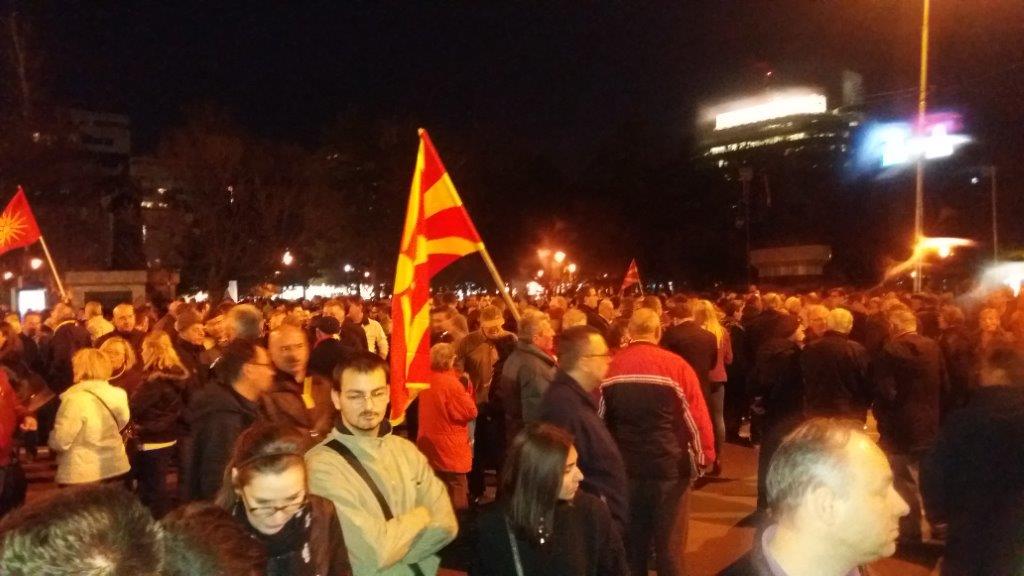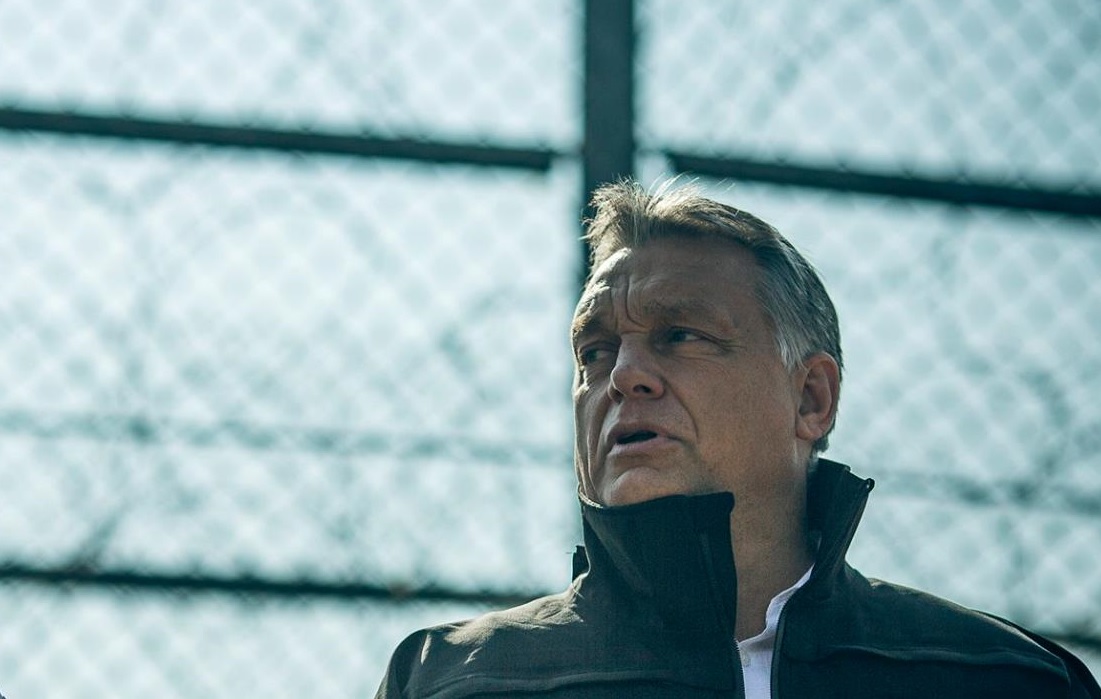This article has been published by Moszkva Tér on May 28, 2020.
Roman Protasevich, a Belorussian blogger and opponent of the Loukachenko regime has recently been arrested, is a hero for many around world. However, if one starts digging into his past, it appears that instead of being a champion of democracy, Protasevich actually comes across as some sort of adventurer. Intelligent yet muddled and reckless, this son of apparatchiks longed for something new and found a way to finance his thirst for adventure on the back of geopolitics. What can we learn from this? Quite simply that opponents of a political regime are not always heroes, which does not excuse said-political regime hijacking planes on the pretext that it doesn’t like some of the passengers.
It can be argued that Roman Protasevich is actually a child of the Belorussian system. Whilst his family was better-off than most of his compatriots, Roman wasn’t satisfied with his lot in life. He yearned for freedom and adventure; he became some sort of “black sheep” from a young age. Indeed, this young blogger and activist, unhappy at having been born in a family of military officers, has a father would is responsible for the ideological training of soldiers and is well-known for his conferences at the Belorussian military academy.
Yet it would seem that he didn’t do that good a job on his son, to say the very least.
He started demonstrating against the Loukachenko regime when he was a mere school-boy. Hardy 16 years old, he was arrested during a rally and expelled from his school. It is only thanks to the pleas of his mother that he managed to finish his schooling, in a local school instead of the elite high school that he had been destined to attend, but only on the condition that his mother accepted to teach at his school.
Protasevich did not flinch and the following year, he took on the role of presiding over one of the largest opposition groups on the Russian-language social media “vKontakte”. He regularly up-dates his blog, demonstrates and “found” training grants from the Czech Republic and the United States. It is therefore not surprising that he was quickly expelled from the faculty of journalism of the University of Minsk. He now became a “free-lance” journalist and sporadically worked with several outlets of the opposition press.
He thus quickly joined “Radio Liberty” for which, he says, he had “covered the Donbass”. Since then, it has been made clear that he did not just “cover” the event but was actually a trained member of the neo-Nazi “Azov Battalion”.
At the same time, he came to know the “Nexta Project”, formed as a YouTube music channel in 2015 by a certain Stepan Putilo, who was only 17 years old at the time. From 2018, the channel became less and less of a music outlet and more and more of an information programme, which now boasts a following of 2.5 million. Nexta then not only became an opposition political force but a veritable “project for the 21st century” (Editor – similar to what is promoted by the Hungarian liberals in opposition to the FIDESZ government) when it shortened its name to “Next”. The adoption of this English language word clearly made reference to the generation that was rising whilst the Slavic word “Nexta” was a play on words with the Belorussian word “не́хта” (no-one), which suggests a feeling of anonymity.
Now it should be pointed out that even the BBC has observed that information pedalled by Nexta is neither the most accurate, nor the most objective. Its publications are based on the contributions of “journalists” that often contain unchecked “facts”.
One such example of such “fake news” is the reporting that Russian special forces had appeared in Belorussia during last year’s demonstrations. Nexta has never tried to hid its animosity towards the Belorussian government and its affinity with the demonstrators. Even Stephan Putilo, its founder, admitted in a declaration given to the popular YouTube channel “вДудь” that he created what he calls “counter-propaganda” in response to the government’s propaganda. Yet last summer, this “style” of reporting was very popular amongst the demonstrators and Nexta’s audience climbed up from 300,000 subscribers to 1.8 million and, taking advantage of the shut-down of the “TUT.by”, became the second most-listened to opposition channel as well as the heart and organiser of the anti-Loukachenko street demonstrations.
During last year’s demonstrations, Roman Protasevich could be found in Warsaw (Poland), where he had received the status of political refugee, setting-up a secure outpost far from the battle that was to be in the form of the Belorussian elections. When the August demonstrations started, he was editor-in-chief of Nexta.
It’s no accident that Nexta is often cited as being amongst the “technological branch of the coloured revolution” put into service to topple the Loukachenko regime. In any event, it can be said that it is somewhat revealing the fact that at the moment of the elections, not only Protasevich and Putilo (who had fled to Poland after finishing his schooling) were in exile but the former’s family too. His father, who had been amongst the participants of the parades commemorating the Soviet victory of 9 May, was now stripped of his military distinctions. In the autumn, following an internal conflict, Protasevich left Nexta and took up the running of “Golovnogo Mozga” in October.
In the meantime, the Belorussian Supreme Court had condemned the extremism of both Golovnogo Mozga and Nexta, including the latter’s logo (a small white “N” on a black background), and both their leading icons placed on the list of suspected terrorists. Both were also put on an international arrest warrant and then, in February 2021, Belorussia requested their extradition from Poland.
The young activists and bloggers are accused of organising riots, incitement to hatred and disturbance to the peace. Protasevich thus now faces the prospect of facing a 15-year prison sentence.
Ever since this indictment, Protasevich often changes his residence and avoids going out alone at night. Then, inexplicably, this feeling of vulnerability seems to have abandoned him: He took a flight from Athens to Vilnius, despite knowing he was being followed and tweeting about it. At the end of the 2020, he had indeed moved to Vilnius, where he posted a photo of a gift he had received from some of his colleagues (that he failed to name) which consisted in a bottle of strong alcohol with the following caption: “To the terrorist from the young generation of extremists”.
However, this caption is actually not that funny. Firstly, because he runs the high risk of being condemned for terrorism and secondly, because it would seem that Protasevich does seem to have some sort of attraction to extremism, as his “reporting” of the Donbass for Radio Liberty attests.
The fact that he openly sought to topple the Loukachenko regime is not the only evidence that points to him acting like a young man in search of adventure and danger. Previously, he had travelled to the Maïdan in Kiev as well as Eastern Ukraine and where he had fought in the ranks of the controversial neo-Nazi “Azov Battalion”, which had had weapons deliveries barred by the American Congress in 2018. Protasevich’s thirst for ideological adventure had thus pushed him into the combat trenches of Eastern Ukraine. It is correct to say that this information was first spread by the Belorussian KGB but before using this fact as a way of dismissing it out of hand, it should be remembered that it has been confirmed by members of the Azov Battalion themselves. Even within the pages of “Novaïa Gazeta”, a Russian ultra-liberal publication, there appeared a photograph of Protasevich wearing the uniform of the Azov Battalion.
But in reality, Protasevich (or rather “Kim” as he preferred to be called when in the Donbass) betrayed himself with his passion, declarations and photographs. He has himself detailed his experiences of war, his military training and his tangled motives to the weekly publication “Focus” and Belorussian opposition publication “Nacha Niva”. In these interviews, he never once mentions that he was a journalistic mission.
What he does talk about in great detail is his training, expresses a feeling that his place was in Ukraine amongst those fighting Russia, the common enemy of both his people and Ukrainians. He explains how he spent a month in the Maïdan, talks about the Belorussian company fighting along the Eastern Ukrainain front and details the excitement felt during assaults. He goes on to explain his motivations and his vision of the world, which highlights the complete chaos that reigns within his mind. He describes himself as a man of moderate right-wing tendencies, as a “nationalist” in the best sense of the word and as a partisan for a limited form of democracy. He says that he has nothing against homosexuals but doesn’t support their demands to be able to adopt children. He would like stricter immigration laws but is tolerant with regards to national minorities. “I’m not against democracy” he says, “but I would like its absurdities to be excluded.” He confirms that in his veins flows both Polish and Ukrainian blood. With regards to Russia, her aggression has made her the successor of the “red Communist peril” and that all must be done to stop the advance of “the hordes of Poutine” for if Ukraine should fall, Belorussia would be next.
But he also adds that he must avenge the members of his family that were victims of Communism. A rather strange thing to say when one considers that his father was responsible for ideological training at the military academy.
When one reads all of this, it is impossible not to think of the tragic fate of the Hungarian-Bolivian adventurer, Eduardo Rózsa-Flores. With his strange ideological ravings, Roman Protasevich does not come across as a champion of democracy but rather the offspring of apparatchiks with an irrepressible need to travel, that has put has sold himself to the side that can finance his hunger for adventure…Which the other side has got to put down, of course.
Gábor Stier
—
Translated from the Hungarian by Visegrád Post



